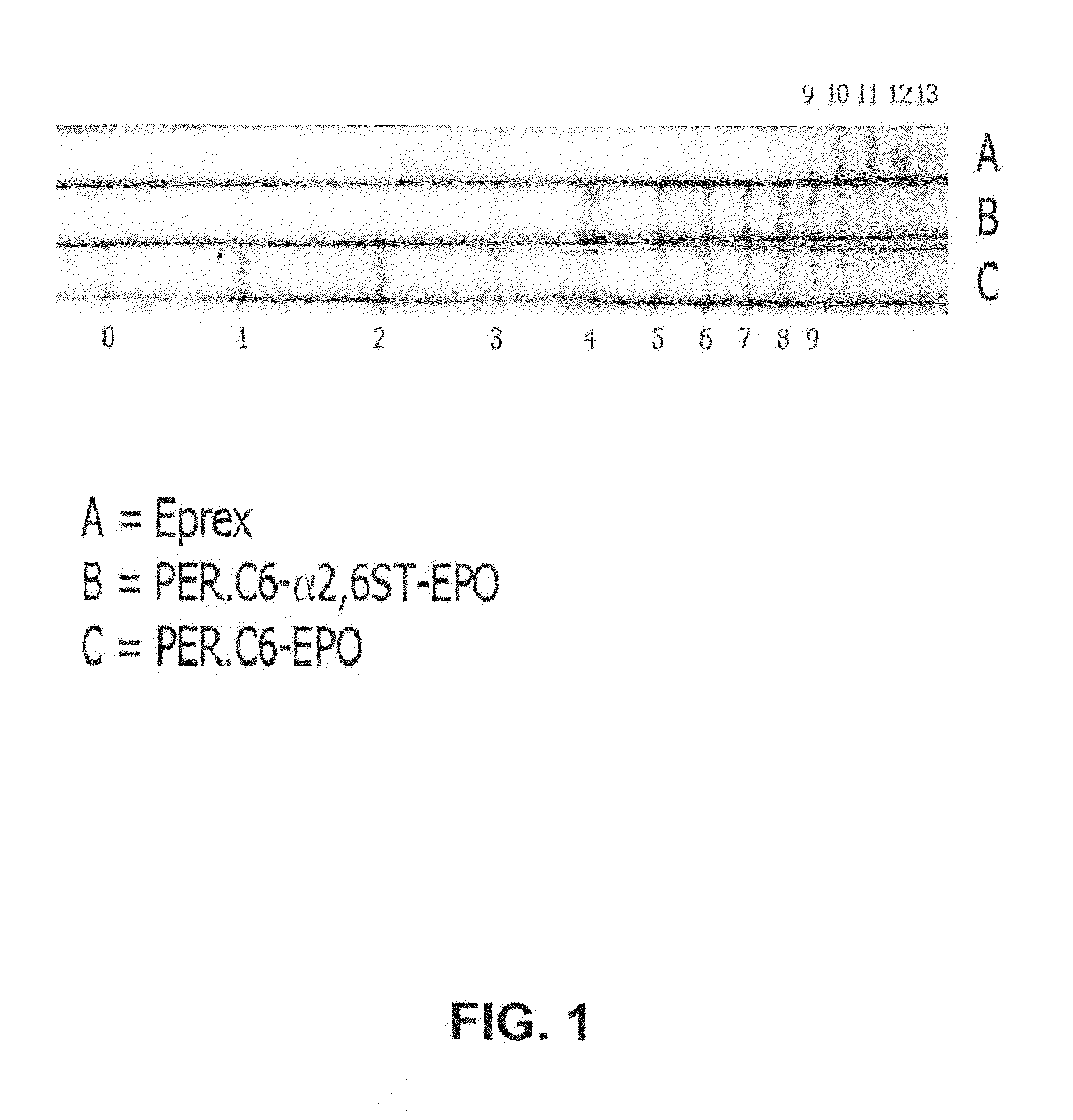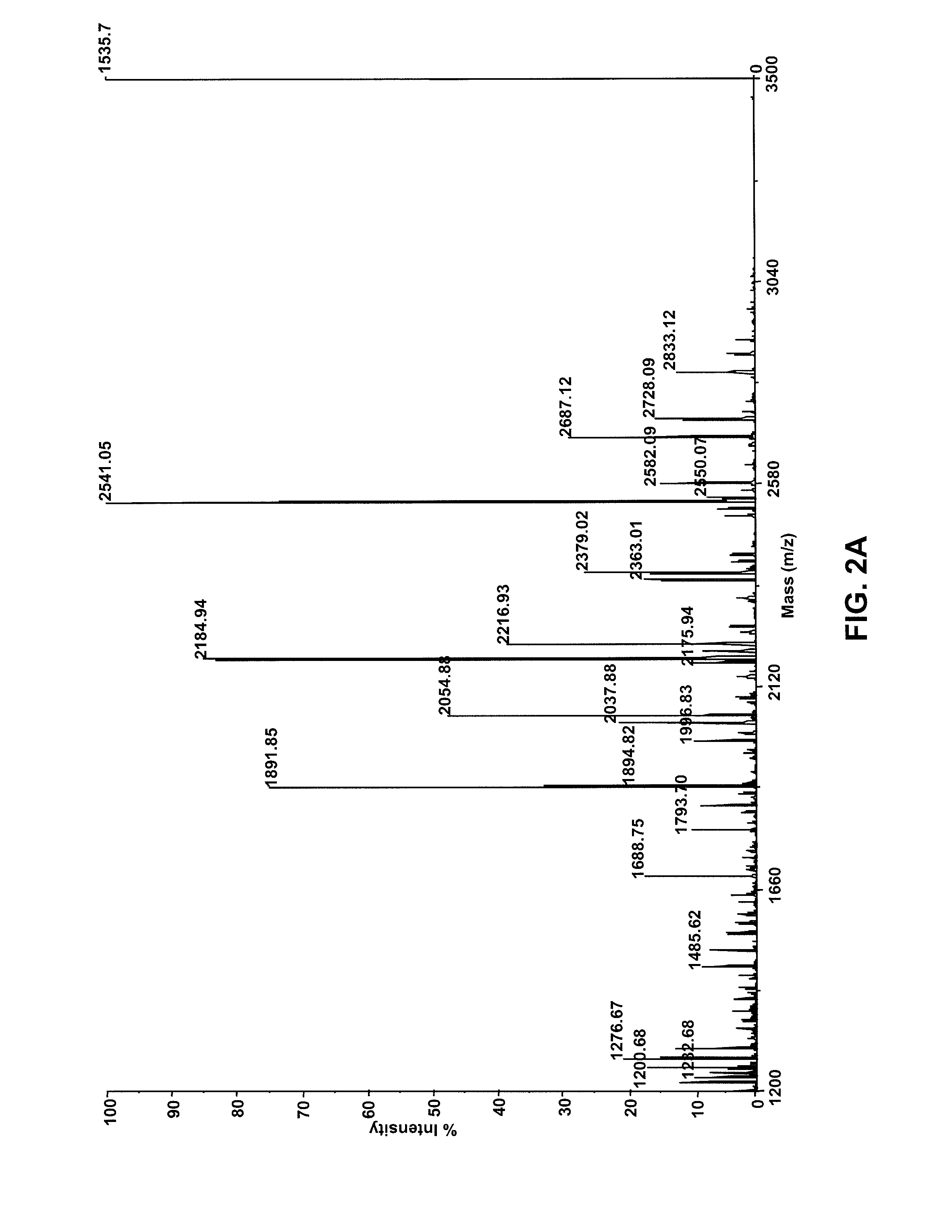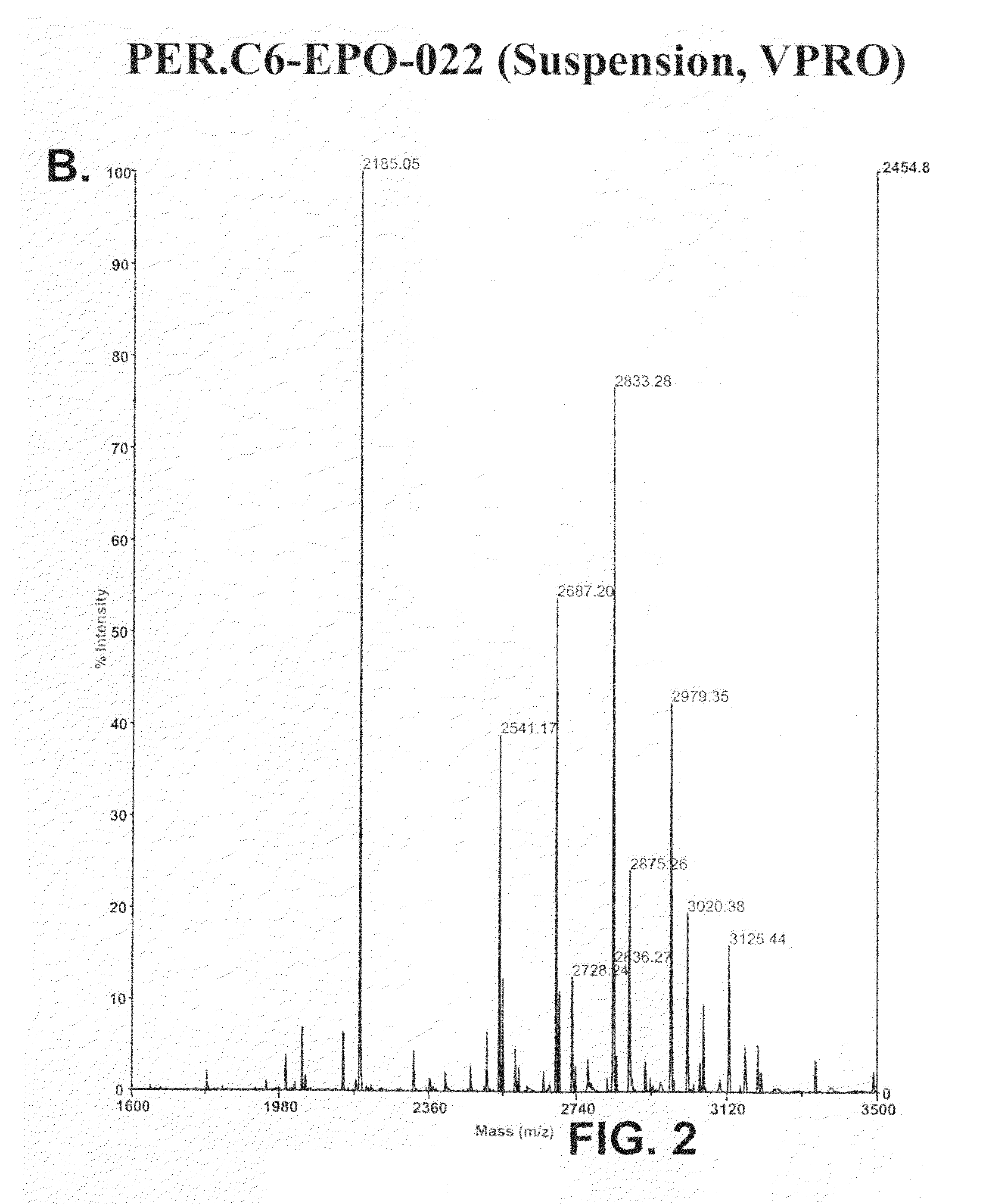Methods to obtain recombinant proteins with increased sialylation from cells that express adenovirus E1A protein, and proteins obtained thereby
a technology of adenovirus and adenovirus, which is applied in the field of biotechnology and recombinant protein production, can solve the problems of unpredictability of the outcome of over-expression of sialyltransferase in such cells, unsuitable for the treatment of anemia, and unpredictable in terms of glycosylation patterns of proteins thus produced, so as to reduce the average content of lacdinac structures and increase the average sialic acid content of proteins
- Summary
- Abstract
- Description
- Claims
- Application Information
AI Technical Summary
Benefits of technology
Problems solved by technology
Method used
Image
Examples
example 1
Increased Sialylation of EPO Produced in PER.C6™ Cells by the Over-Expression of α-2,6-sialyltransferase
[0066]To determine the effect of over-expression of α-2,6-sialyltransferase on the sialylation of EPO produced in PER.C6™ cells, EPO was produced in adherent cultures of an α-2,6 sialyltransferase over-expressing PER.C6™ cell line, i.e., PER.C6™-EPO-ST clone 25-3.10 (see, Example 2 of WO 03 / 048348, incorporated by reference), and in the parental cell line PER.C6™-EPO clone 25 not over-expressing the α-2,6-sialyltransferase. The cells were first cultured in T-flasks in DMEM+10 mM MgCl2+9% FBS. At the moment that the cells were grown to 60-70% confluency, the serum-containing medium was replaced by DMEM+10 mM MgCl2 without serum. The culture was then continued at 37° C. and 10% CO2 for three to four days. The culture supernatant was thereafter harvested and EPO was purified and analyzed using methods that have been described in WO 03 / 038100, the contents of the entirety of which are...
example 2
Increased Level of Galactosylation and Fucosylation of EPO Produced in Per.C6™ Cells Through the Adaptation of the Cells to Growth in Suspension in Serum-Free Medium
[0067]The stable PER.C6™ cell line, PER.C6™-022, producing EPO was used to assess the level of galactosylation of EPO when the cells were cultured adherently (using methods described in Example 1) and when the cells were adapted to growth in serum-free medium. For the latter, a procedure was developed to produce EPO in PER.C6™ cells that were cultured in suspension in serum-free medium. The procedure is described below and was applied to several EPO-producing PER.C6™ cell lines. PER.C6™-EPO-022 cells were used to produce EPO with N-linked glycans structures that are typical for non-modified PER.C6™ cells as described in WO 03 / 038100.
[0068]For the production of PER.C6™-EPO, the above-indicated cell line was adapted to a serum-free medium, i.e., Excell 525 (JRH Biosciences). Therefore, the cells were first cultured to form...
example 3
Level of Sialylation is Further Increased in Cells that Over-Express α-2,6-sialyltransferase and that are Cultured in Suspension in a Serum-Free Medium
[0076]We reasoned that the increased level of galactosylation in suspension cultures in serum-free medium would be beneficial in obtaining a higher level of sialylation in cells that over-express the α-2,6-sialyltransferase because the increased galactosylation results in the formation of more GlcNAc-Gal structures to which a sialic acid can be linked. Therefore, PER.C6™-EPO clone 25-3.10 was adapted to suspension culture in serum-free medium and EPO was produced in VPRO medium as described in Example 2.
[0077]The sialic acid content of EPO was analyzed using isoelectric focusing, which was performed essentially as described in WO 03 / 038100. Instead of visualizing EPO using Western blot analysis, EPO was stained with colloidal blue (Novex). The bands represent EPO isoforms containing different amounts of sialic acids per EPO molecule. ...
PUM
| Property | Measurement | Unit |
|---|---|---|
| concentration | aaaaa | aaaaa |
| pH | aaaaa | aaaaa |
| pH | aaaaa | aaaaa |
Abstract
Description
Claims
Application Information
 Login to View More
Login to View More - R&D
- Intellectual Property
- Life Sciences
- Materials
- Tech Scout
- Unparalleled Data Quality
- Higher Quality Content
- 60% Fewer Hallucinations
Browse by: Latest US Patents, China's latest patents, Technical Efficacy Thesaurus, Application Domain, Technology Topic, Popular Technical Reports.
© 2025 PatSnap. All rights reserved.Legal|Privacy policy|Modern Slavery Act Transparency Statement|Sitemap|About US| Contact US: help@patsnap.com



